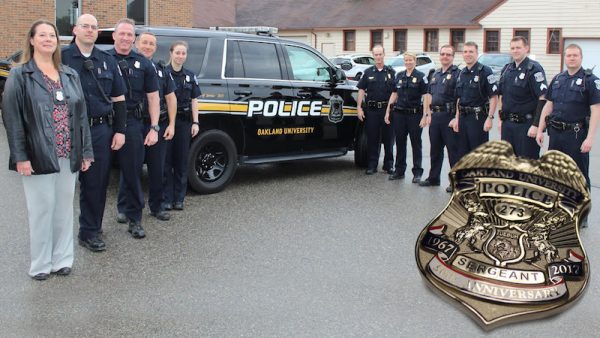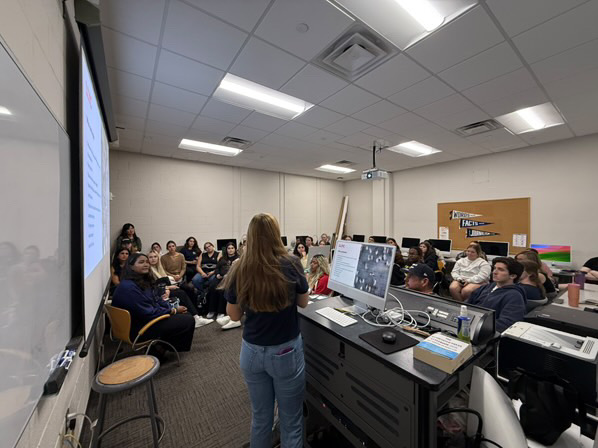Detroit Chief of Police shares experiences, views on police-civilian relations
Detroit Chief of Police James Craig gave relationship advice to students Tuesday — police and civilian relationship advice, that is.
He was brought in by the Association of Black Students to share his experiences and views as part of OU’s African American Celebration Month.
Forging a career path
While he has spent a long time working in the police world, Craig said he didn’t originally plan on being a police officer. He decided to make the switch when he wanted change and realized the only way to create that change was to be a part of it.
Craig started working for the Detroit Police Department in 1977. He said that the department was on the cutting edge of what he calls “community police”; it was a department with many stations that established a good relationship with the citizens it served.
He left his job there to work for departments in other states. After years of this he came back to Detroit and became its Chief of Police in 2013.
The department that he returned to was much different than the one he left. Detroit residents didn’t want to help the police, and it took officers a long time to respond to calls. The officers were discouraged and relationships with civilians were at an all-time low.
“I’m talking the lowest morale I’ve seen any place,” Craig said.
Craig’s policy
Since he has been in charge, Craig said he has seen that morale rise, and with it, the community’s confidence. Police responses to emergency calls have gotten better, and while there will always be bumps in the road with police-civilian relationships, he said they are doing much better.
Communicating with the people the department serves is key, Craig said. When citizens know what’s going on, they tend to be more cooperative. That’s why he asks his officers to communicate to build rapport.
If an officer pulls someone over, Craig thinks it’s best to tell them why, as “it really fosters good relationships.”
Craig said he also wants to address any police-citizen clashes head-on. “Transparency is always key.”
Citizens need to do their part as well, he said. He wants people to cooperate with officers even if they don’t see eye to eye.
“The time to fight is in the courts,” he said. “You definitely don’t want to handle it in the field.”
Craig said his department doesn’t get as many complaints as other departments, but violent events get more publicity since it’s in Detroit.
Because communication between officers and civilians has improved, Craig said that Detroit is far from being the next Ferguson, and that he hears mostly good things about the department from the people it serves.
Craig said tries to communicate with everyone and will continue to do so whenever possible.
“I always welcome an opportunity to talk with our young people.”





